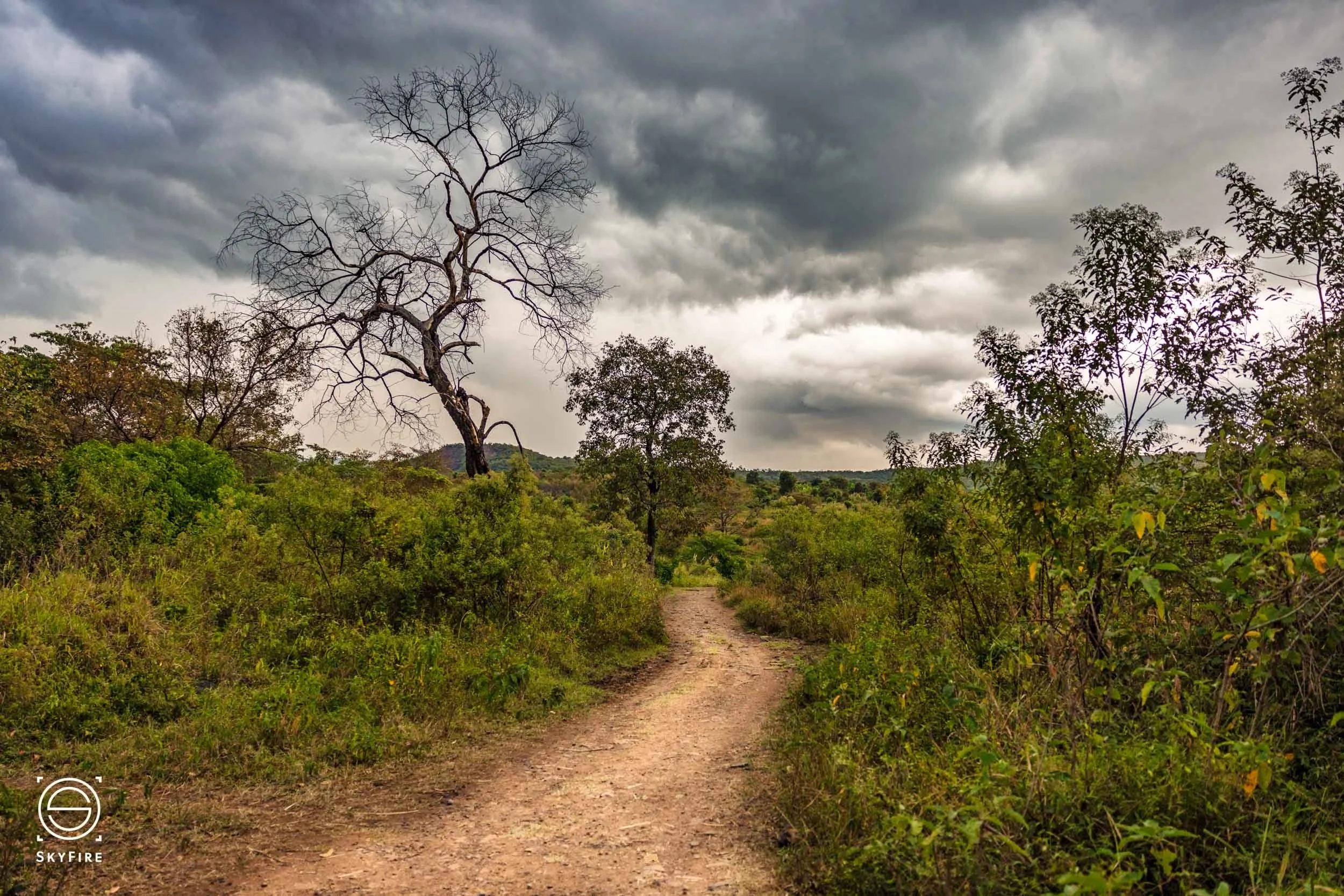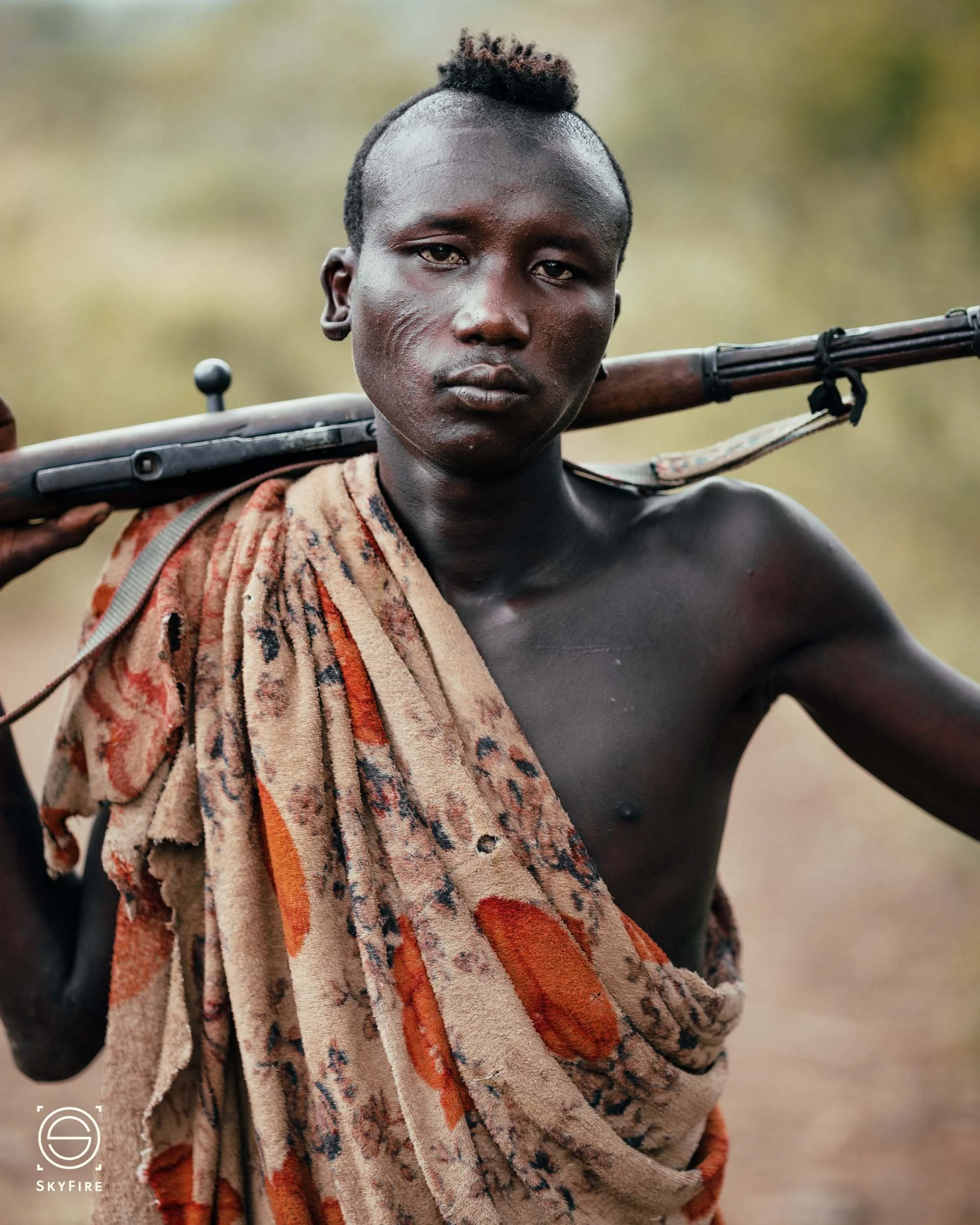Suri Tribe
Hello: chali, chali, chali
The Suri are remarkable. They are a semi-nomadic tribe that live in an isolated part of South West Ethiopia as well as parts of South Sudan and form part of a larger ethnic group called the Surma.
They grow crops and wealth is measured in cattle, with the average married man owning between 30-40 cows. Polygamy is the norm - as it is with many of the tribes I visited - and ancient traditions like wearing plates through the lower lip and ears, as well as body scarring are still practiced.
We camped for 3 nights with the Suri in a small clearing by a stream, just 20km from the South Sudan border. They are some of the friendliest, happiest people I’ve ever met, and they love being photographed. They enthusiastically painted their faces, dreamed up stunning floral headdresses and possess an astonishing ability to look straight down the barrel of a camera lens.
Some of the most memorable moments, though, were without a camera. One was a rainy morning when I walked with our guide to one of the nearby villages where I sat with the men and shared some of their home brewed “beer”, a fermented maize drink that’s drunk daily and shared communally in a large calabash seed bowl.
An evening spent around a campfire listening to the men sing and tell stories - while the village chief holds forth with strong liquor and a loud trumpet - are enough to remind you that you don’t need much in life to be happy and community is everything.
There are maybe 1,000 visitors a year to the Suri, however, the government has opened up mining and agricultural rights on their land and new roads are being laid to help transport the spoils of these to far off places - none of the benefit of which goes to the them but brings them into direct conflict with vested interests that will have large and persistent effects on their way of life. (Read: Tribes & Tribulation: Photography, Ethics and the Omo Valley for more.)
I’m grateful for the opportunity to have spent time with them.
























